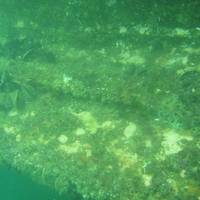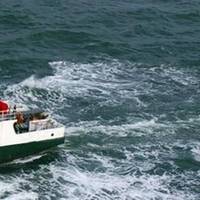Is Tin Returning in Silicone Hull Coatings?

The reemergence of organotin in marine hull coatings is of increasing concern, with academics and environmentalists calling on International Maritime Organization (IMO) to investigate the use of tin in silicone-based foul release systems and other ships hull coatings. While use of the organotin tributyltin (TBT) was outlawed as an active biocide almost 10 years ago, the IMO is claimed to “have left the door open” for tin as a catalyst, but according to some academics the amount of organotin used suggests it could be acting as the active agent. Dr.
Legendary Research Ship on Sale

The R/V 'Cape Hatteras' is for sale after 31 years service to Duke-University of North Carolina Oceanographic Consortium (DUNCOC). Currently on the market with an asking price of $1.25 million, the ship's future owner will acquire a legendary craft highly respected by the international scientific community. The 135-foot R/V Cape Hatteras is perhaps best known for work in 2010 after the deadly Deepwater Horizon accident jetted oil and natural gas into the Gulf of Mexico. During cleanup efforts…
R/V Cape Hatteras Will Embark on New Phase
Famed for Finding Oil Deposits on the Seafloor after the Gulf of Mexico Deepwater Horizon Accident, the Invaluable Seagoing Laboratory is up for Sale. Meticulously tended to by a professional crew, and certified for another decade of exploration, the research vessel (R/V) Cape Hatteras has a lot of life left in her. That service may, however, take place in new seas now that the craft is being retired and sold by the Duke - University of North Carolina Oceanographic Consortium (DUNCOC). Constructed for The National Science Foundation in 1981 by Atlantic Marine Ship Builders, the 135-foot craft has been operated and meticulously maintained for 31 years by DUNCOC, and berthed at Duke University Marine Laboratory (DUML) on Pivers Island in Beaufort, North Carolina.
Researchers Question Ship Sulfur Emission Numbers
Researchers last week claimed that sulfur emissions from cargo ships are causing ocean and coastal pollution and affecting scientific understanding of global climate change. Scientists at Carnegie Mellon University in Pennsylvania and Duke University in North Carolina said in a letter to the science journal Nature that ships are spewing more sulfur from their funnels than previously suspected which could be an important factor in solving the puzzle of global warming. "You've got to consider ships explicitly if you are going to understand ocean chemistry which is a foundation for understanding atmospheric chemistry and climate change," said James Corbett, an engineer at Carnegie Mellon. In some coastal regions ships also have a significant impact on air quality, he added.





